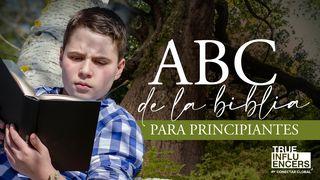The Deeply Formed LifeMuestra

“Interior Examination”
Interior examination is a way of life that considers the realities of our inner worlds for the sake of our own flourishing and the call to love well.
Much of modern life resists this kind of living. Many of our days are strategically and subconsciously constructed to avoid looking beneath the surface. We often belong to church communities that reinforce a lack of introspection. We use God to run from God, and we use God to run from ourselves.
In Psalm 139, we see the heart of a person who is a model of deeply formed interior examination: David. The first fourteen verses of the psalm are about God’s knowledge of humanity and David in particular. But by the end of the psalm, you get this sense that David was keenly aware that although God knew everything about him, David didn’t know everything about himself. So in words of interiority and confession, he wrote,
Search me, O God, and know my heart!
Try me and know my thoughts!
And see if there be any grievous way in me,
and lead me in the way everlasting! (verses 23–24)
Most of us want an awareness of God. But what we need in addition is awareness of self. David affirmed that God knows it all, so he asked for revelation not of God but of himself. The disposition of David’s heart was to go beneath the surface.
In the devotionals thus far, I have highlighted the importance of listening. The contemplative way is about listening deeply to God. The way of reconciliation entails listening deeply to each other. The way of interior examination is about deeply listening to ourselves.
When we consider Psalms and other biblical texts as models for interior examination, we begin to see the priority given toward accessing and integrating the world within. But it takes some work. David, in Psalm 139, did three things effectively that we are invited to follow. He made time for interior examination, he was integrated enough to surrender his inner world to God, and he had the courage to face himself. How about us?
Ask yourself: Today, what am I mad about? Sad about? Anxious about? Glad about? Let these insights into yourself lead you into prayer.
Acerca de este Plan

As New York pastor Rich Villodas defines it, a deeply formed life is a life marked by integration, intersection, intertwining, and interweaving, holding together multiple layers of spiritual formation. This kind of life calls us to be people who cultivate lives with God in prayer, move toward reconciliation, work for justice, have healthy inner lives, and see our bodies and sexuality as gifts to steward.
More
Planes relacionados

Que El Mundo Crea

Chispas De Aquí Y De Allá

Disciplinas Espirituales

La Gracia. 7 Claves Para Vivir en Plenitud.

ABC De La Oración ... Para Principiantes.

1 Tesalonicenses: Modelos a imitar

ABC De La Biblia Para Principiantes
Marcas De Un Discípulo

Y...¡Adoremos!
